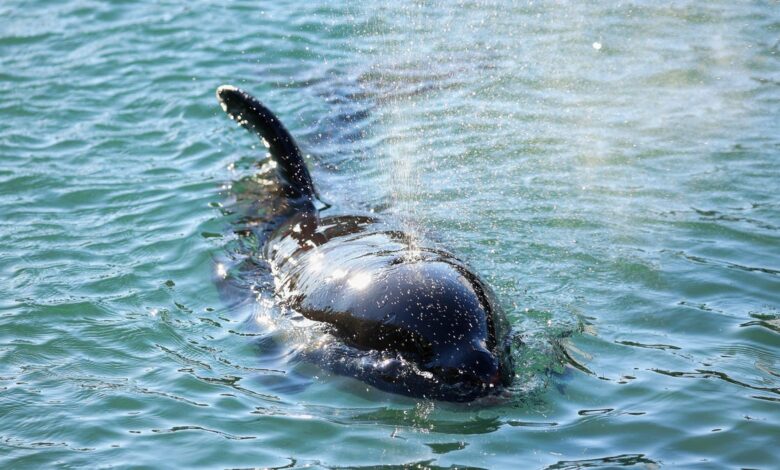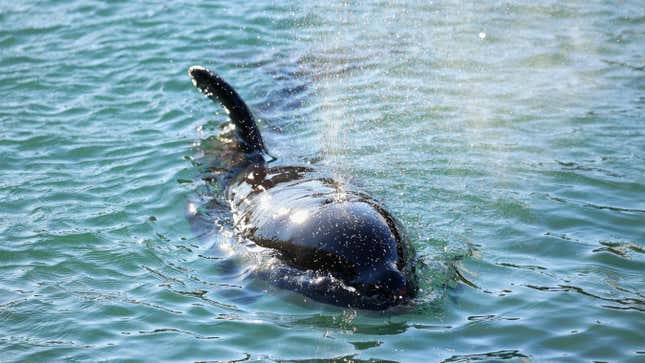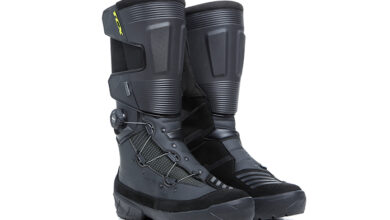At Least 20 Killer Whales Are Responsible For Rudder Raids On Sailboats


A scientist based in Spain and his team narrowed down the population of killer whales engaging in sailboat rudder-removal in the waters around the Iberian Peninsula. Twenty animals out of a family pod of less than 60 seem to be the culprits, with the adults training the calves to engage in the behavior.
Spanish scientist Dr. Renaud de Stephanis and his team pinned two satellite tracking units to two of the individuals in the pod in order to give sailors more information about the orcas’ whereabouts. Dr. de Stephanis, who is also president of the Conservation, Information and Research on Cetaceans (CIRCE), told the BBC that the orcas do not seem to be acting out of trauma or (the very human emotion) revenge, but engaging in play:
“It’s only a game. It isn’t revenge [against boats], it isn’t climate change, it’s just a game and that’s it,” said Dr Renaud de Stephanis, a scientist based on the south coast of Spain.
[..]Orcas are known to be highly social mammals. Other subspecies of killer whale have been recorded playing with floating seaweed, toying with fishing gear and one population in the Pacific even went through an apparent phase of carrying dead salmon around on their heads.
Using boat rudders as playthings is novel behaviour and it is currently confined to this small, endangered Iberian population, but the young animals do appear to be copying adult orcas.
We’ve definitely been guilty of calling the events “attacks,” but we here at Jalopnik are going to strive to do better and see things from the orca’s point of view. While the killer whales are just having a good time, the incidents have been complete headaches for sailors. The orcas have damaged several boats and sank at least three in the waters between Spain and Morocco. The incidents ramped up after 2020, with now dozens of attacks occurring each month.
The Spanish government hopes de Stephanis’ work will allow sailors to avoid areas where the critically endangered orcas are active. Some experts believe that the attacks will stop only when boats leave the area for an extended amount of time, but good luck asking humans to do anything. Eventually, it will become too expensive for sailors to traverse the area or, in the worst case scenario, sailors might take the situtation into their own hands and injure or kill an orca.




